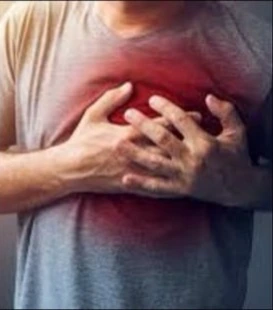Getting adequate sleep is an essential component of a healthy lifestyle, right up there with eating a balanced diet and exercising frequently. But did you know that falling asleep itself could be harmful?
When you close your eyes and fall into unconsciousness, there are literally a myriad of things that could go wrong; for some people, the threat is so tremendous that they never wake up again. An old Greek proverb claims that death and sleep are actually brothers, with death serving as the flawed embodiment of sleep and sleep as its perfect counterpart.
Sleep has typically been seen as an automatic, “passive,” biological activity. The truth is that our brain is actually very active while we sleep. It’s also true that modern science hasn’t provided comprehensive answers to many of the concerns surrounding sleep. [1]
It turns out that there are still some unusual (and occasionally scary) things going on when our conscious thoughts shut off and our bodies go into sleep. Additionally, the results can occasionally be quite horrifying.
1. Carbon Monoxide Poisoning
Carbon monoxide, sometimes known as CO, is a colorless, odorless gas that can be lethal if it gets into the lungs in large amounts. It can be practically impossible to detect carbon monoxide (CO) in the gases that come from running cars, stoves, grills, fireplaces, gas ranges, furnaces, and other appliances if a carbon monoxide detector is not being utilized.
Why is it lethal? Basically, if enough of it gathers in a small enough place, breathing it in can become dangerous. Furthermore, if you inhale enough of it, having it in your lungs alone might be enough to unambiguously “seal the deal.” If the subject is awake, they may feel weak, lightheaded, headachey, or queasy.
But what if you are asleep when it happens? Since they can pass away while they are asleep, persons who are sleeping frequently show no symptoms.
2. Sudden Cardiac Arrest
SCA, also known as sudden cardiac arrest, is caused when the sinoatrial node, your body’s natural pacemaker, which is located in the heart, is injured. [2] In other words, this disease results from a malfunction of the electrical systems of the heart. In certain cases, the initial few minutes are also lethal.
What makes it kill? In essence, it decreases blood supply to the brain. The scariest aspect, then? Not only is it possible, but in half of cases there are no signs prior to cardiac arrest.
3. Myocardial Infarction
Happily, there is a good probability that the victim of a myocardial infarction, more often known as a heart attack, will awaken before the incident results in their death.
Heart attacks happen when the blood flow to a section of the heart is restricted. A portion of the heart muscle could die from this obstruction.
Why is it lethal? The heart may not be able to pump any blood to the rest of the body if enough cardiac tissue is damaged. If immediate medical care is not obtained, this could result in cardiac failure, which could be fatal.
4. Cerebral Aneurysm
A brain aneurysm, also known as a cerebral aneurysm, is simply a weak spot in the brain’s blood vessel wall. In some aspects, it resembles a narrow balloon that fills with blood. As blood flows through the artery over time, it becomes weaker and swells; if the pressure becomes too great, a rupture may occur.
Why is it lethal? An aneurysm rupture frequently only causes a brief period of bleeding. Blood can, however, increase internal skull pressure and damage neighboring brain cells. If the pressure builds up too much, the sickness might quickly turn fatal.
5. Dry Drowning
The majority of us are aware that you can drown in water; yet, many people are unaware of what is meant by “dry drowning.” It turns out to be a truly horrifying way to die!
This risk’s fundamental premise is that it is a type of drowning that can still occur even after the victim has left the water. The term “dry drowning” has evolved to refer to what is technically still drowning, despite calls from some doctors for its elimination.
It can happen if even a few drops of water that are inhaled make it past the throat and into the lungs. Even while symptoms are typically present, they might occasionally be subtle and simple to miss. [9]
The worrisome element is that this water may cause breathing problems over time. Rarely, the person may experience breathing issues hours or even days after going to bed. So-called “dry drowning” is actually quite rare when compared to drowning deaths as a whole, but that doesn’t make it any less horrific.
Why is it lethal? In essence, it deprives the victim of oxygen, causing them to suffocate.
 Moni Malawi
Moni Malawi 

